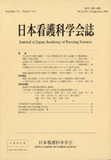Japanese
English
- 販売していません
- Abstract 文献概要
- 参考文献 Reference
要旨
本研究は,小児心身症に伴う行動障害を持つ子どもとその家族が,子どもの行動障害が引き起こした家族の危機的場面を乗り超え,家族機能の回復に伴う家族の再生過程と,親子の相互作用から生まれた家族の耐久力(family hardiness)の特徴を明らかにした.行動障害を持つ子どもとその家族16例を対象に,面接治療場面での親子の相互作用の観察と親への半構成面接を同意を得て行い,記述されたデータを質的帰納的に分析した.家族内葛藤に対応する中で家族は子どもの症状の進展に合わせた安定と不安定,親子の関係性の前進,停滞,後退を繰り返し,混沌とした状況の不確かさの中で粘り揺れながら,子どもとの精神的な分離と結合を繰り返し,情緒的絆と信頼に基づいた柔軟な心理的距離を構築する子どもと「ともに揺れる」家族の再生過程が明らかになった.この過程は「修羅場」「停滞」「渦からの脱出」という3つのサブプロセスから構成され,「衝突と放棄」「手探りのかかわりと巻き込まれ」「距離の確認と信頼の再構築」という,行動障害児とその家族が最も快適な心の距離の構築に特徴的な相互作用を含んでいた.また,ストレスや困難を緩和し内的強さを育む家族の耐久力は,家族の再生の促進と安定した親子の心理的距離を構築する重要な力であった.
Abstract
This study explored the regeneration process of families who faced difficulties in dealing with children's psychosomatic behavioral disorders and described the characteristics of family hardiness.
Data were collected through semi-structured interviews with 16 families and/or participant observations during counseling sessions. Interviews were audiotaped with permissions and transcribed verbatim and analyzed according to the grounded theory approach. The findings suggested that “synchronization” was a core category that described the process of how families of children with behavioral disorders coped with the frightening and discouraging events surrounding their children and how new family functions were regenerated through the child-parent interactions.
This family regeneration process consisted of three phases: “in-limbo,” “stagnation,” and “getting out of chaos.” Each phase was constructed with the family interactions of “conflicting and relinquishing,” “groping in the dark and being involved with,” and “confirming the emotional distances and reconstructing the relationships of trust,” respectively. The family members got deeply involved in both their children's psychological and behavioral difficulties in these phases; however, they came to terms with their children's outlasting behaviors. While the families and children retraced these three phases repeatedly, new family ties and the best emotional distance between child and family members were established. Family hardiness was the most important strength that accelerated the family regeneration and psychological stability in families.
Copyright © 2002, Japan Academy of Nursing Science. All rights reserved.


